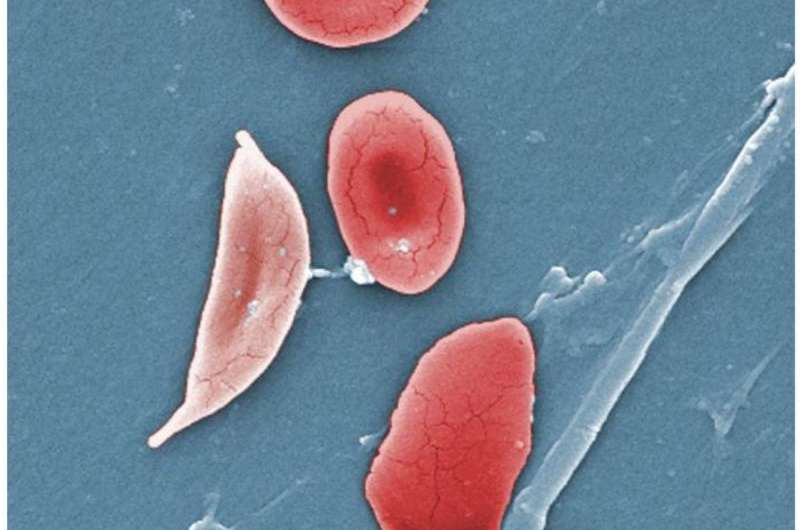Addressing a complex world of pain in a single gene difference

A single letter difference in a single gene, inherited from both parents, spells a lifetime of anemia and pain for 20 million people, mostly of African ancestry, worldwide. Sickle cell disease (SCD) causes red blood cells to assume a sickle shape and jam in capillaries, cutting off oxygen to lungs, brain, bones and other organs. Despite the single genetic origin of SCD, each person's disease experience and even life expectancy depend upon where they live, and the social, physical and environmental factors they encounter.
Now, a new review published by Wiley in the journal Advanced Genetics proposes that it is not only possible and necessary to analyze all these influences to understand disparities in experience and treatment of this disease, but that this approach will advance understanding and healthcare for all diseases with a hereditary component. The research and this new perspective stems from review of existing research on SCD together with preliminary data collected by an international collaboration studying the relationships of sociodemographic, clinical, genetic, and environmental factors to pain among adults with SCD from three countries in Africa and the African Diaspora—Cameroon, Jamaica, and the United States.
SCD is the first molecular disease and may become the first to have an approved molecular cure from gene editing. In the meantime, we must continue to scale up efforts to develop new tools and techniques for reducing and preventing complications in the millions of people worldwide suffering from SCD, most of whom are unlikely to have immediate access to high-tech cures when they become available. The unmet needs of people with SCD are prevalent, even in European and North American countries. The authors write, "large national and multinational integrative studies are needed to better understand SCD globally and catalyze the development, translation, and implementation of locally-appropriate interventions and policies."
More information: Charmaine D. M. Royal et al, Sickle cell disease is a global prototype for integrative research and healthcare, Advanced Genetics (2021). DOI: 10.1002/ggn2.10037





















